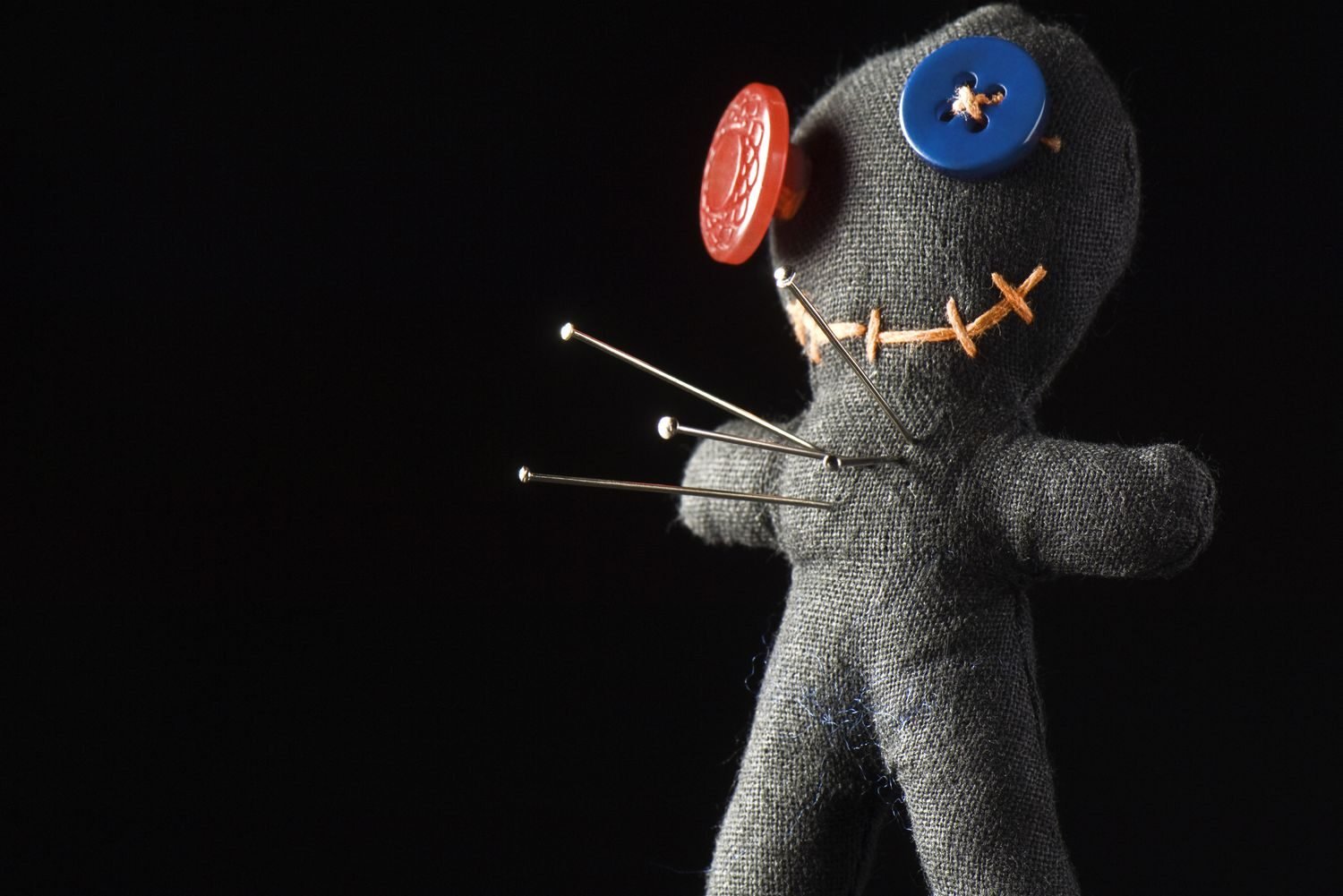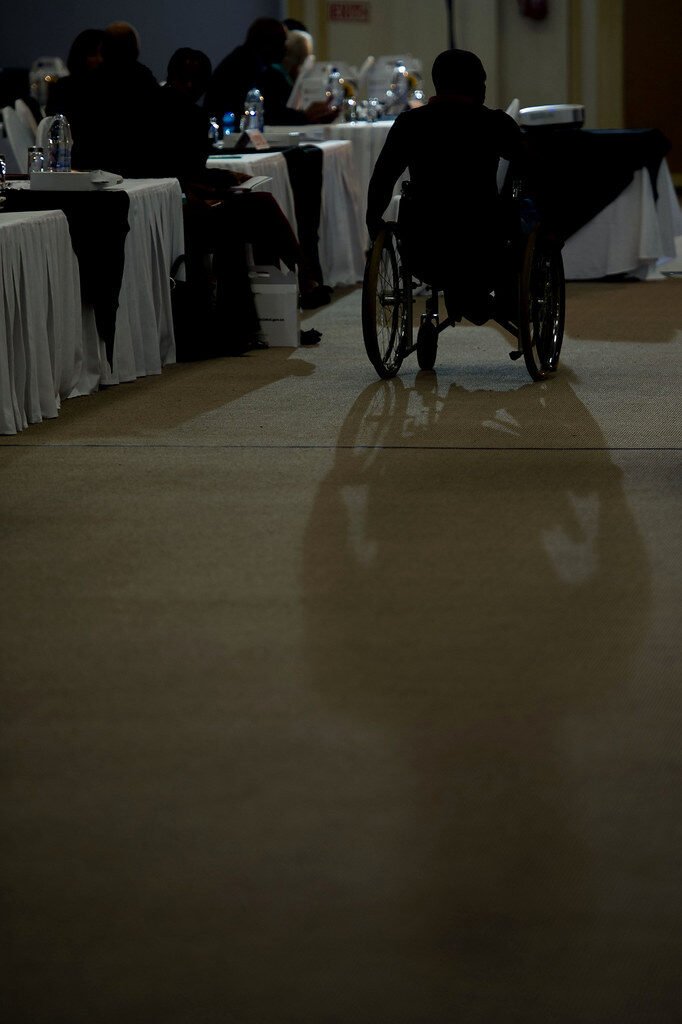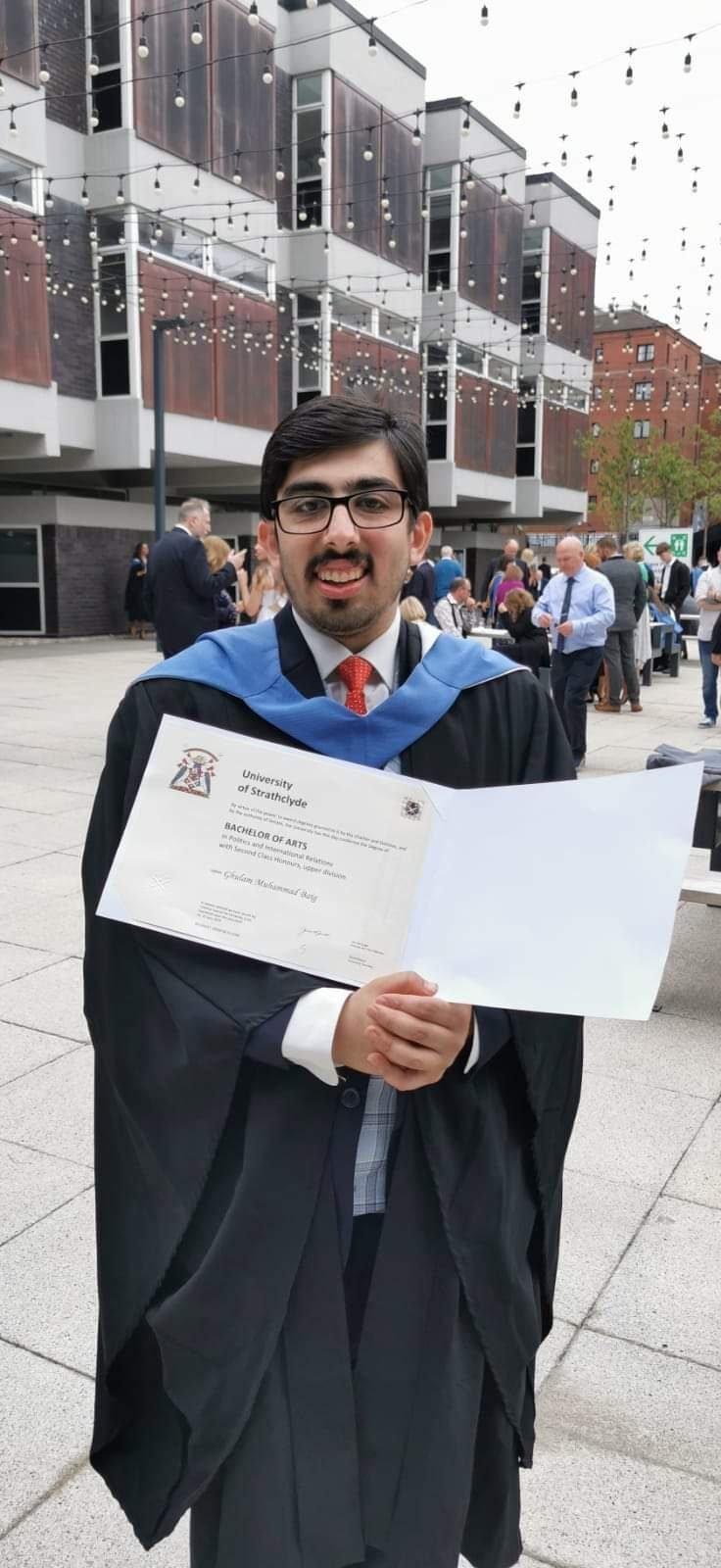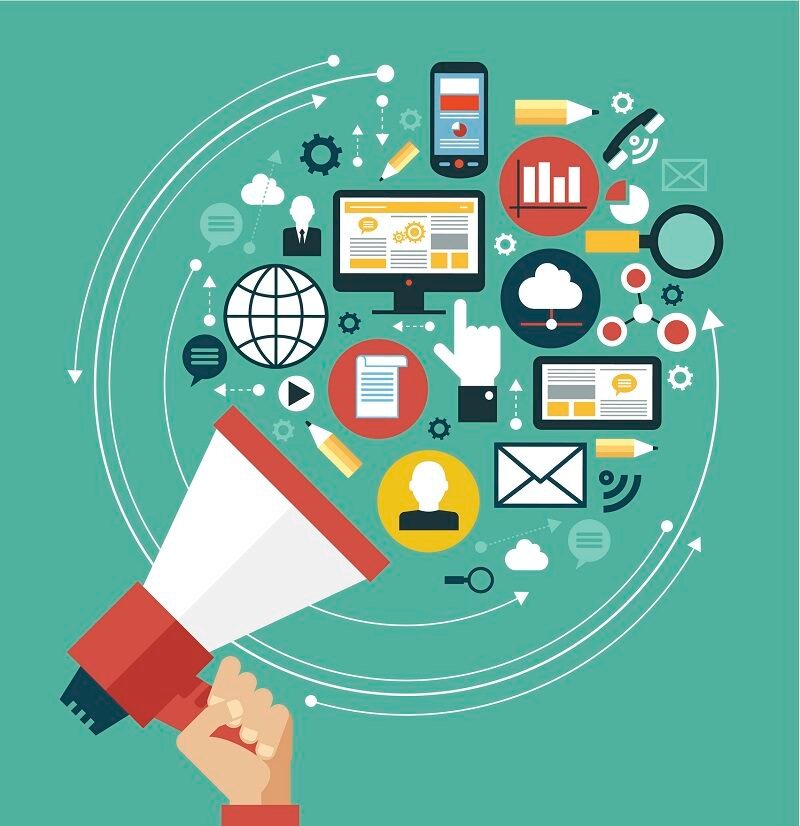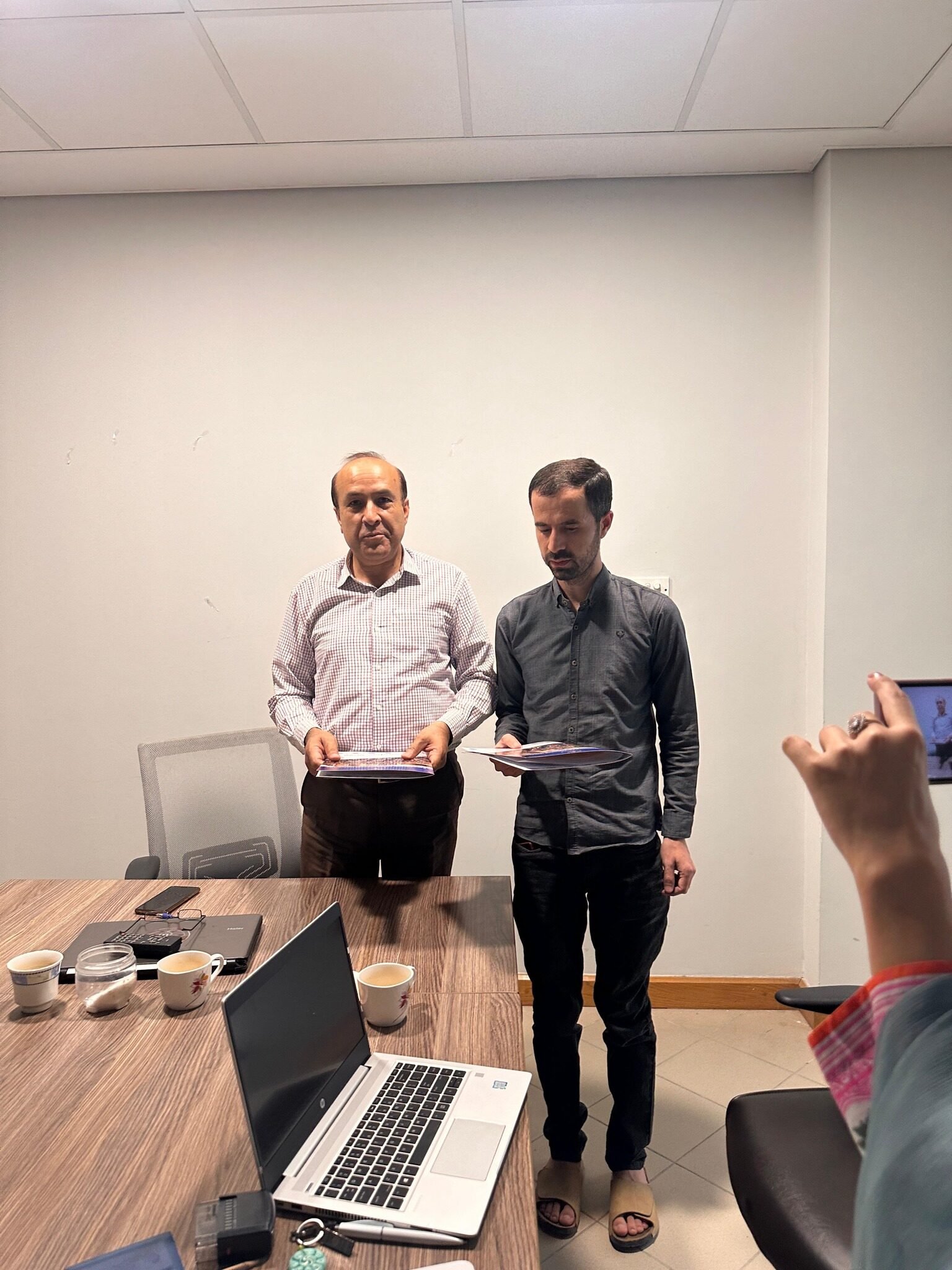Category: disabilities
Are the disabled really free?
Youm e Azadi, also known as Independence Day, is a significant occasion for every citizen of a nation. It represents Pakistan’s hard-earned freedom and sovereignty from the British Raj.
However, for persons with disabilities, the concept of Azadi (freedom) extends beyond political independence; it encompasses the right to live with dignity, equality, and full participation in postcolonial society.
For much of history, we have been told that the Sun never sets on the British Empire, a phrase that symbolized the vastness and power of colonial rule. Yet, despite the vast territories and wealth controlled by the British Empire, true freedom was absent for millions of people across the globe who were subjected to oppression, exploitation, and denial of basic human rights, and to this date.
The purpose of being Azad (free) is not merely about breaking the chains of colonialism or foreign domination.
For persons with disabilities, being Azad means breaking the chains of societal barriers, prejudice, and discrimination that have long restricted their full participation in all aspects of life. It means having the freedom to access education, employment, healthcare, and public spaces without facing physical, social, or institutional obstacles.
True independence for persons with disabilities also involves the freedom to make choices about their own lives, to have their voices heard, and to contribute to the community as equal citizens. It is about the right to live independently, to enjoy the same opportunities as everyone else, and to be treated with respect and dignity.
Are we (the disabled) really Azad in society in Pakistan and within the West? I do not think this is the case? We may be in factions within the Western Hemisphere, but certainly, we are not free.
On this Youm e Azadi, let us remember that the struggle for independence is not complete until every member of society, regardless of ability, can experience the true essence of freedom in their societies.
Who to care for? Who to send support for? Who to help?
These are the questions that the team usually finds the most easiest, but most complex issues to solve. Recently, a team post requested support for a disabled person as he could not afford the costs for his family. But this raises several important issues and questions:
- Systemic Support for Disabled Individuals:
- Government Aid: Is there adequate government support for disabled individuals in Gilgit-Baltistan? Are there existing policies, and how effective are they?
- Non-Governmental Organizations (NGOs): What role do NGOs play in providing support? Are there enough resources and programs available to assist disabled persons?
- Economic Barriers:
- Employment Opportunities: Are there sufficient employment opportunities for disabled individuals? What initiatives exist to promote inclusive employment?
- Financial Assistance: What types of financial aid are available for disabled persons? Are there micro-financing options, grants, or loans tailored to their needs?
- Social and Cultural Challenges:
- Stigma and Discrimination: How prevalent are stigma and discrimination against disabled individuals? What efforts are being made to change societal attitudes?
- Community Integration: How well are disabled individuals integrated into the community? Are there inclusive programs and activities that promote their participation?
- Healthcare and Accessibility:
- Medical Facilities: Are there adequate medical facilities and services for disabled individuals? Is there access to specialized care and rehabilitation?
- Physical Accessibility: How accessible are public spaces, transportation, and buildings for disabled persons?
- Educational Opportunities:
- Inclusive Education: Are schools and educational institutions equipped to support disabled students? What special education programs exist?
- Vocational Training: Are there vocational training programs that cater to the specific needs of disabled individuals to help them gain skills and employment?
- Legal and Policy Framework:
- Legal Rights: Are the legal rights of disabled individuals well-protected? What laws are in place to ensure their rights and how well are they enforced?
- Policy Implementation: How effectively are existing policies implemented? Are there gaps between policy and practice?
- Community and Family Support:
- Family Burden: How are families of disabled individuals supported? Are there respite care services, counseling, and financial assistance available to them?
- Community Programs: What community programs exist to support disabled persons and their families? Are there peer support groups and community centers?
Addressing these issues requires a multi-faceted approach involving government policy, community engagement, and support from NGOs and international organizations. The complexity lies not only in addressing the immediate needs of disabled individuals but also in creating a sustainable and inclusive environment that supports their long-term well-being and integration into society.
With limited resources, how do we prioritize whom to support? What criteria should be used to decide the allocation of resources? How do we ensure that our support does not compromise our values? It’s crucial to maintain fairness, equity, and integrity in our decision making. Without adequate resources, how can we develop sustainable solutions that offer long-term support rather than temporary relief?
The trilemma affects people’s lives significantly. Without a solution, individuals, including those with disabilities, face dire consequences. For instance, consider the distressing case of a disabled girl being abused in Gilgit. Such tragedies underscore the urgent need for societal and systemic changes to protect vulnerable populations. If these issues are not addressed, similar incidents may continue to occur.”
The Difficulty of Recognizing and Accepting One’s Abilities : Being able is often a curse
You Wake Up One Day as a Human Being
Imagine waking up one typical morning, ready to face the day. You have breakfast with friends or family, exchanging stories and plans for the day ahead. It’s an ordinary day, filled with routine activities and familiar faces.
Going About Your Day
You head out to attend your job, school, or college, navigating the bustling streets and crowded public transport. The day unfolds as expected: meetings, classes, and interactions fill your schedule. Amidst the busyness, you find moments of calm and contemplation, perhaps during a coffee break or a quiet moment between tasks.
A Sudden Encounter
Then, suddenly, you notice a person with a disability. They might be navigating the street, attending the same class as you, or driving on the road. This sight catches your attention and stirs a range of thoughts and emotions.
Your Feelings
Initially, your feelings are dominated by empathy. You imagine the challenges and obstacles faced by the person with a disability, appreciating your own abilities more deeply. However, over time, this empathy gradually morphs into self-pity directed towards the person with a disability. In Urdu, typically people say “Shukar Alhamdulillah” (Thank God), feeling grateful that they do not have to go through such hardships.
Cursed Feelings
These feelings of self-pity are what we call cursed feelings. Over time, you might start seeing a person with a disability as an object of pity rather than recognizing them for who they truly are—individuals with their own strengths, experiences, and dignity.
The Curse of Ableism
Ableism is the real curse, an insidious attitude that views people with disabilities as lesser or as objects of pity rather than equals. All of humanity, whether you believe in a god or not, is part of nature and deserving of equal respect and opportunity. However, society often fails to think this way. Instead, we leave people with disabilities, including those who are blind, deaf, or physically impaired, to suffer in silence.
Why?
Why do we perpetuate this cycle of pity and exclusion? It stems from a lack of understanding and awareness. We fail to recognize the full humanity of people with disabilities and the richness they bring to our communities. Breaking free from these cursed feelings involves:
- Education and Awareness: Learning about the diverse experiences of people with disabilities and understanding the barriers they face.
- Advocacy and Support: Promoting policies and practices that ensure accessibility and inclusivity in all aspects of life.
- Empathy and Respect: Treating people with disabilities with the same empathy and respect we would want for ourselves.
By challenging our own biases and advocating for a more inclusive society, we can move away from cursed feelings and towards genuine empathy and equality for all.
Why Inclusion versus Exclusion?
The Basis of Exclusion
Exclusion of individuals or communities, especially those with disabilities, often lacks a legal foundation. No disabled person can legally charge someone with a violation of their human rights without substantial evidence. This lack of enforceable legal protection contributes to the perpetuation of exclusion.
Exclusion is often the path of least resistance. Including disabled individuals in social, professional, and communal discourse requires effort, adaptation, and often a shift in perspective. Many people default to a charitable model, where disabled individuals are only considered during specific times, such as the Islamic tradition of Ramadan. While these traditions can highlight the needs of disabled communities, they are insufficient for promoting continuous inclusion.
Why Should It Be My Problem?
A prevalent mindset is, “Why should it be my problem?” Many people believe that addressing the needs of disabled individuals is the responsibility of experts, laws, and government agencies. This perspective is a form of the bystander effect, where people assume someone else will address the issue, thus diminishing individual accountability and making it a public issue.
The Ease of Exclusion
Choosing exclusion over inclusion is often the easier route. Ignoring the needs and existence of disabled individuals allows people to avoid the discomfort and effort involved in making necessary changes to accommodate them. This neglect can lead to severe consequences for disabled communities, exacerbating their marginalization and the challenges they face.
The Meaning of Disabled and the Need for Inclusion
The term “disabled” carries multiple connotations. In the realm of information technology, “disabled” refers to a program, software, or hardware that is not functioning correctly. This technical usage can contribute to the negative perception of the term when applied to people. Many in the disabled community find the term limiting and stigmatizing.
In society, falsehoods and misconceptions about disabled individuals contribute to their exclusion. Phrases like “Do not mingle with the disabled community because they do not understand” perpetuate harmful stereotypes and deepen the divide. These misconceptions have persisted for millennia, shaping public perception and behavior toward disabled individuals.
The Importance of Inclusion
Inclusion is not merely a moral obligation but a necessity for a just and equitable society. Disabled individuals deserve the same opportunities, rights, and respect as anyone else. True inclusion involves challenging stereotypes, dismantling barriers, and fostering an environment where everyone can participate fully. This shift requires collective effort and a commitment to understanding and addressing the unique needs and contributions of disabled individuals.
Promoting inclusion over exclusion benefits society as a whole. It leads to a more diverse, compassionate, and innovative community where everyone’s potential is recognized and valued. It is time to move beyond token gestures of inclusion and work towards genuine integration and acceptance of disabled individuals in all aspects of life.
Visit to Goodwill By KIU Officials of the Speical Education, Gilgit
Building Upon That,
KIU’s Special Education Department’s students and teachers visited Gilgit Baltistan’s Goodwill Movement, and we were thrilled to host them!
Our team conducted a session on Special Education, highlighting the importance of inclusive learning and our ongoing projects dedicated to empowering individuals with disabilities.
This session involved:
- A lecture from Mustafa Kamal on Braille.
- A lecture from Ali Ahmed on IT skills.
- A lecture from Farhan Baig and Mehwish Sarwar on Inclusion Awareness.
In the coming months, we will run one-on-one sessions with the students to further inclusive education in the Gilgit region and city.



Overseas Pakistanis and inclusion.
On Tuesday, June 25th, 2024, Ghulam Baig, the CEO of Gilgit Baltistan’s Goodwill Movement, celebrated a remarkable achievement by graduating with a BA Honours in Politics and International Relations from The University of Strathclyde in Glasgow, UK. This milestone is particularly significant as Baig becomes the first disabled person from Gilgit Baltistan, Pakistan to graduate from this prestigious institution.
Baig expressed immense pride and gratitude for this achievement, noting that being the first disabled person to graduate from The University of Strathclyde is a great honor. In his conversation with Goodwill Movement, he highlighted the personal and collective significance of this accomplishment. Baig’s journey, however, underscores a broader issue that requires attention: the support and recognition of disabled individuals within Pakistan.
Why must such assets prove themselves at an international level before being appreciated locally?” Baig questioned.
His experiences reflect the challenges and triumphs of the disabled community, emphasizing the need for greater inclusion and support within Pakistan. Baig’s success story serves as both an inspiration and a call to action, urging society to come together and create a more inclusive environment that recognizes and nurtures the potential of all its members, regardless of physical abilities.
This poignant inquiry sheds light on the broader systemic issues faced by the disabled community in Pakistan. Despite their immense potential and talent, individuals with disabilities often find themselves overlooked and underappreciated within their local contexts. This lack of recognition not only undermines their abilities but also perpetuates a cycle of marginalization and limited opportunities.
Several factors contribute to this issue. Cultural perceptions and stigmas associated with disability play a significant role in limiting opportunities for disabled individuals. Many communities in Pakistan still view disability through a lens of pity and charity rather than empowerment and capability, which is not been reduced by the overseas community. This outdated perspective often leads to disabled individuals being underestimated and their potential overlooked.
Furthermore, the lack of accessible infrastructure and inclusive education systems exacerbates the problem. Educational institutions in Pakistan frequently lack the necessary resources and support systems to accommodate disabled students, thereby limiting their educational and professional prospects.
In addressing these challenges, the role of overseas Pakistanis becomes crucial. The Pakistani diaspora, particularly those who have achieved success and recognition abroad, have a responsibility to contribute to the betterment of their homeland. They possess the resources, influence, and global perspective needed to drive meaningful change.
Instead of being overly political with supporting a certain individual, Overseas Pakistanis can also leverage their experiences and networks to advocate for better policies and practices that support disabled individuals. That is the true meaning of Pakistan.
Facts versus Social Misconceptions
- Misconceptions about disabilities can indeed perpetuate discrimination and hinder social inclusion. In South Asia, where cultural norms and awareness levels vary, addressing these misconceptions becomes even more critical. Some reading this article may have these misconceptions, but as a DPO we have to raise awareness of personal individual development in Gilgit Baltistan.
- Presenting here are the misconceptions with facts. Some of the headings are loosely translated from Urdu to English.
Poor fellow can not read or write or listen
- The typical social discourse when anyone sees a disabled person is that they are not able to read or write.
- Remember that stereotypes are not always accurate representations of individuals or the complex realities of the modern world.
Consider the cases of Shah Zuhaib, Muhammad Rafi and Mustafa Kamal, who belong to the Ghizer and Diamer regions of Gilgit Baltistan.
Shah Zuhaib, the individual next to Farhan and Ali Ahmed has now joined KIU and has started taking Speical Education classes which in turn will help shape future policy of the Speical Education Dept in KIU campuses across Gilgit Baltistan.
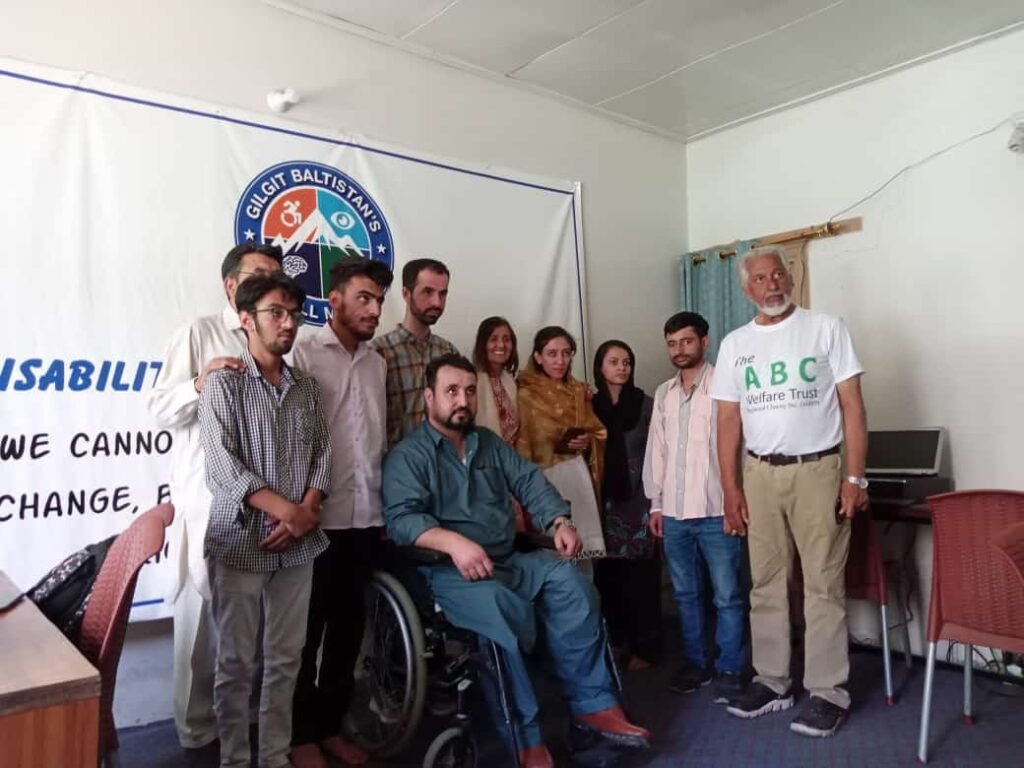
Muhammad Rafi seen in the image below is now close to graduating in Sociology due to Goodwill Skills. Dr Zubair then HOD Sociology at KIU Praised the efforts of Gilgit Baltistan’s Goodwill Movement in not just motivating Rafi but also developing a pathway for the new batch of disabled students in KIU Gilgit Campus.

Mustafa Kamal has joined our Goodwill team (seen below), advancing the rights of disabled persons across Gilgit Baltistan. He is dedicated to Goodwill and particularly to the Ghizer region where he wants further development for PWDs.

What about women – Surely Disabled women are excluded from your project
The short anwser is no. Disabled women get equal treatment as disabled men in the centre. As a matter of fact our two female students, Khushan and Mehnaz have graduated from the centre and have found opporunities in freelancing and the Speical Education Complex of Gilgit Baltistan.

Breaking barriers
Media portrayals of disabled individuals have frequently perpetuated negative stereotypes. This phenomenon, often described as psychological warfare, effectively ‘others’ persons with disabilities, marginalizing them and reinforcing societal prejudices. Such portrayals can lead to the internalization of negative self-images among disabled individuals and perpetuate a cycle of discrimination and exclusion.
Notably, writers like Edward Said and David Arnold have extensively explored the concept of orientalism in India, highlighting how Western narratives have historically constructed the East as the ‘Other.’ Similarly, the representation of disabled individuals in media often follows a pattern of ‘othering,’ where they are depicted as pitiable, dependent, or even as villains, rather than as complex, multifaceted individuals.
The crippled, the dumb, and the mute are often reduced to their disabilities, with their identities and stories overshadowed by their physical or mental conditions. This reductionist view strips them of their humanity and individuality, making it difficult for society to see them as equals. Instead of being portrayed as active participants in their own lives, they are often shown as passive recipients of charity or as burdens on society.
Media portrayals of disabled individuals have often perpetuated negative stereotypes, contributing to a cycle of discrimination and exclusion. These portrayals reduce complex, multifaceted individuals to their disabilities, overshadowing their identities and stories. Instead of being active participants in their lives, disabled individuals are often depicted as passive recipients of charity or burdens on society.
Regarding charity, it symbolizes self-fulfillment when communities or individuals provide for basic needs like food, rations, or medical expenses. However, it often doesn’t extend beyond immediate necessities.
Our Way
Perhaps we should consider an alternative approach: empowering the disabled community to become stakeholders within society. Research shows that disabled employees can significantly impact a company’s revenue, with 30% higher net profits and 111% higher overall net income1. It’s time to rethink our perspectives and create more inclusive narratives. Why haven’t we explored this before? 🤔
Inclusive Education Steps in Gilgit Baltistan
In a landmark initiative, the Goodwill Movement and Karakoram International University’s Department of Special Education have come together to form a powerful alliance dedicated to fostering inclusive education and empowerment for individuals with special needs.
This significant partnership was officially marked by the signing of a Memorandum of Understanding (MOU) between President Farhan Baig of the Goodwill Movement and Dr. Qutoshi, the esteemed Head of the Department of Special Education at Karakoram International University. The MOU signifies a mutual commitment to drive forward inclusive education and provide robust support for individuals with special needs.
Areas of Mutual Interest
- Developing Innovative Programs and Resources: By creating new and effective educational programs and resources, the partnership aims to cater specifically to the unique needs of individuals with special needs, ensuring they receive the highest quality of education.
- Enhancing Teacher Training and Capacity Building Through Braille: Recognizing the critical role of teachers in the educational journey, the alliance will work on enhancing teacher training programs. Special emphasis will be placed on training in Braille, equipping educators with the skills necessary to teach students
- Promoting Accessibility and Inclusivity in Education: The partnership will strive to make educational environments more accessible and inclusive, breaking down barriers that individuals with special needs often face. This will involve both physical accessibility improvements and the creation of inclusive curricula and teaching methods.
Together, the Goodwill Movement and Karakoram International University are committed to creating a more inclusive and equitable society where every individual, regardless of their abilities, has the opportunity to thrive and succeed.






![WhoCares_BlackRed1[1]](https://gbgoodwillmovement.com/wp-content/uploads/2024/08/WhoCares_BlackRed11-1052x406.gif)
